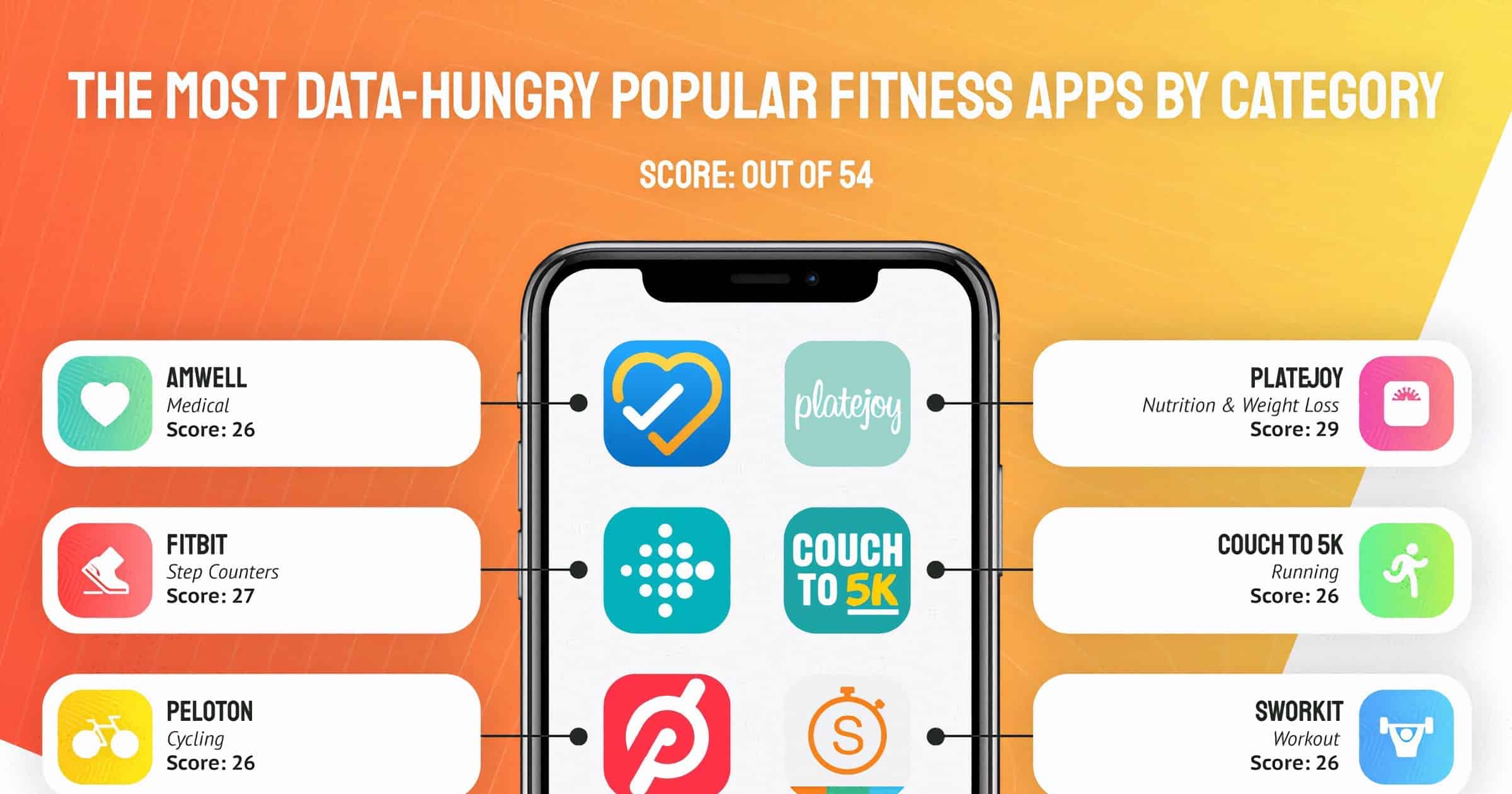A recent study examined privacy policies of the top health and fitness apps to determine which ones track the most data.
Update
It appears that Supplement Timing has updated its article. A spokesperson from Maven reached out to both them and me, saying the study contained inaccuracies. Here’s what Maven said:
- There are 8 fields classified as “default” — the number for Maven should be 4.
- There are only 4 “default” fields consumers need to use the Maven app — name, email, US state, and device information. Address, age, date of birth, gender, and phone number are not collected by default.
- There are 15 fields classified as “optional” — the number for Maven should be 11. Maven does not ask for calorie & food intake, sleep schedule, hobbies / interests, or workout details.
Health & Fitness Tracking
Supplement Timing found 27 data types and gave the apps 2 points for each type they track by default and 1 point for types that require user permission. Here are the key findings:
- The app that tracks the most data is a medical app called Maven, which collects 23 types of data and has a score of 31 points.
- Fitbit is the fourth hungriest data-tracker in our study, with 27 points.
- Nutrition & Weight Loss apps track 15 of the 27 data types, and this is the top category because they are most likely to track that data by default.
- The least data-intrusive app is a mental health tool, WorryWatch, which only uses the device data it gets from the App Store.
As one example, Maven is a women’s health and fertility app and collects 23/27 data types, and tracks eight of them by default. Another app called PlateJoy is the most invasive app in the Nutrition & Weight Loss category. A third app called FitBit is the most invasive step counter app.
The full results can be found on Supplement Timing’s website.

Not listed but the app that comes with Omron blood pressure monitors is bad too. I picked up one a few weeks ago, but as soon as I read the EULA on the App it went back in the box and back to Amazon. The EULA makes it clear that all data, not just BP data, will be stored in servers in the US, not Canada where I live or just on the phone where it should stay. It goes on to say that my data will be shared with third parties for both health tracking and marketing purposes. Nope, not going to do that.
@geoduck:
Sounds like you’re just averse to needless risk.
I’ll bet you’re one of those guys who always checks his parachute before skydiving; or his air tanks before scuba diving. Where’s the fun in that?
In all seriousness, many of these companies are counting on your NOT reading their EULA, and certainly not understanding it.
Yes, I think they likely do.
It was especially frustrating because I have an older Omron BP gauge that works great. Omron makes fantastic instruments of all kinds, I’ve used Omron devices in industrial settings for years. I just wanted a meter that would put the data into the Health App.